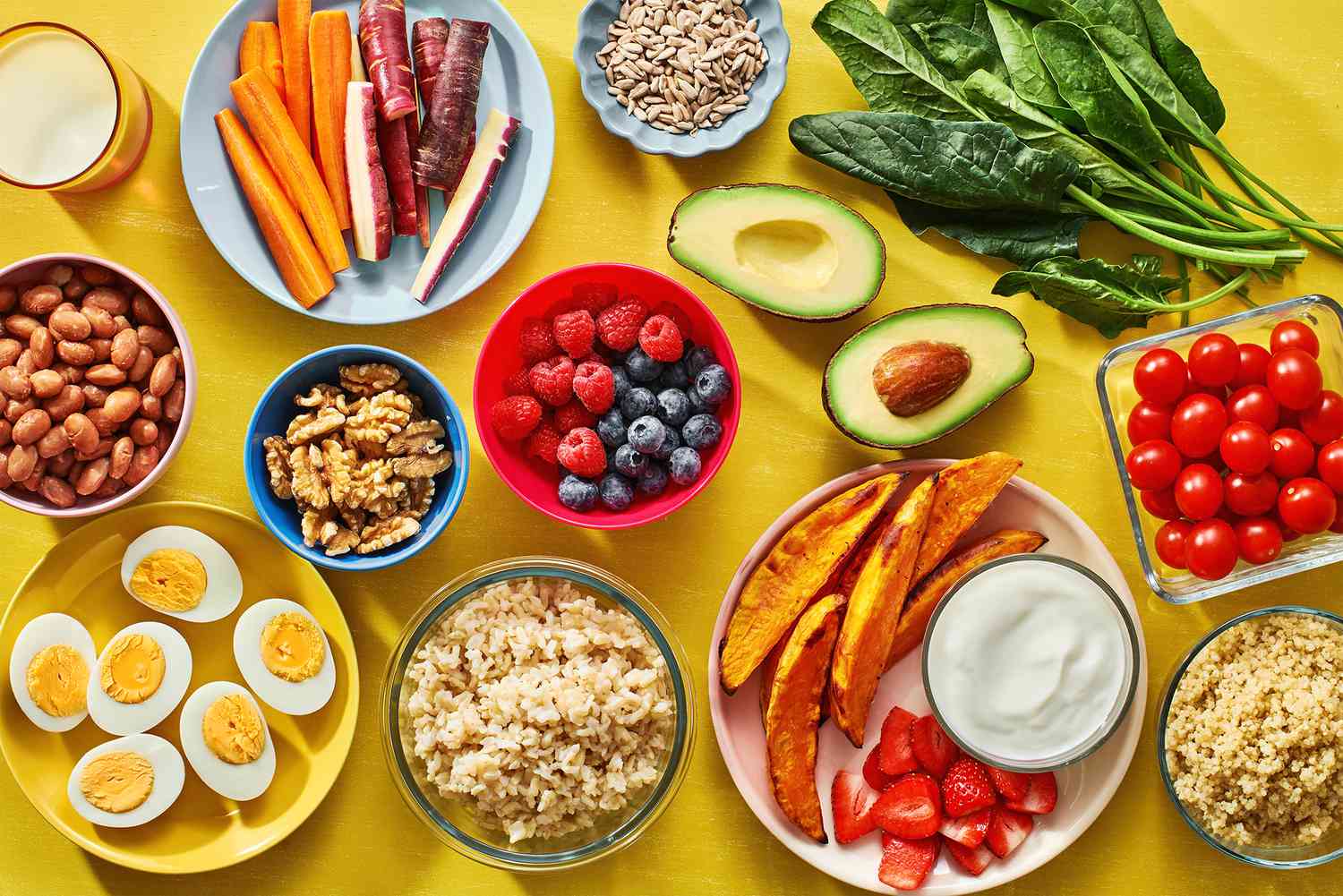How to save money on food: Step one: Start treating your leftovers like rare collectibles—because who wouldn't want to add "mystery casserole" to their menu?
At this point, the cost of living is getting too much. Food prices are doing their own Olympics, and every market trip feels like a robbery in broad daylight—except the thief is inflation, and you're the unwilling victim. We’re all trying to figure out how to save money on food that doesn't include drinking garri for the rest of the month.
In February 2025, Nigeria's food inflation rate hit 23.51% year-on-year. That's a drop from 37.92% in February 2024. But before you celebrate, it doesn't mean prices are falling; they are still rising at a slightly less demonic pace. Meanwhile, staples like rice and meat are moving like luxury goods. A bag of rice now costs more than some people's monthly salary, and beef? You might start reconsidering the idea that whole “protein is essential”.
The naira, as usual, is in a toxic situation with the dollar, and we’re suffering from the heartbreak. Importing food is becoming a joke, and local production is fighting for its life. But since we don’t have the luxury of throwing tantrums and waiting for a miracle, we must get smart. How can you save money on food without applying for a loan at every mealtime? Let’s get into it.
How to Save Money on Food: Because Your Wallet is on Life Support
Traditional budgeting advice is usually written by people whose biggest financial struggle is deciding whether to buy shawarma with or without sausage. Meanwhile, here, the cost of living is getting too much for the living. When a single tuber of yam is pricing itself like it has a PhD, and a bag of rice is setting at over ₦100k like rent, it’s clear we need a different approach.
Buy This or Starve: The Art of Prioritizing Essentials
Staples – Your Survival Kit: Rice, garri, and beans are the backbones of every Nigerian home. Rice might be acting like premium property, but beans? Beans is still loyal. High in protein and filling and less likely to have you staring at your account balance in betrayal. Garri? Always a classic, but it’s becoming suspiciously bougie, too.
Proteins – Choose Your Fighter: Beef and chicken move like luxury cars. Meanwhile, eggs and fish are still playing for the home team. Stock up when prices are tolerable because one day, even eggs might start going “only for special occasions.”
Fresh Produce – The True Heartbreakers: There’s no pain quite like watching tomatoes go from affordable to “are you sure you don’t want to use tin tomatoes instead?” Peppers and onions follow closely behind in disrespect. The trick? Buy in bulk when they’re cheaper and stash them in your freezer before they think they’re gold-plated.
Condiments – The Flavour MVPs: If Maggi and palm oil could talk, they’d be demanding recognition for carrying the weight of Nigerian cooking. These things seem small, but when you suddenly can’t afford them, you’ll understand their true power. Stock up in moderation—don’t let it become a hoarding situation.
Realistic Benchmarks – Or as real as it gets these days:
Staples (40-50%) – No matter how bad things get, you need something to put in your stomach. Think of it like the foundation of your house—you can’t afford to skimp here.
Proteins (20-25%) – Things get tricky here. Your budget decides if your team will be “chicken lap” or “boiled egg with vibes.” Either way, balance is key.
Check Also: Home Remedies For Headaches After Delivery
Fresh Produce (15-20%)—If your soup looks like flavored water, you’re doing something wrong. You need a good mix of vegetables, tomatoes, and peppers to keep things edible.
Condiments (10-15%): Food should taste like food. A little goes a long way, so plan wisely.
There's no magic formula—just survival instincts, inshallah. Adjust these numbers based on your reality because, in this economy, adaptation is the real superpower.
How to Outsmart Nigerian Markets & Make Sellers Respect You
If supermarkets are the bougie aunties of grocery shopping—calm, overpriced, and fixed in their ways—then open-air markets are the street-smart cousins who know how to shake things. Here, prices aren’t set in stone, and if you play your cards right, you can walk away with twice the goods for half the price. The key? Negotiation. And no, not the shy "Aunty, abeg, reduce am small" type—proper, calculated, strategic haggling.
Do Your Homework: Don’t step into the market looking lost like a JJC. Ask around, check social media, or even eavesdrop on other buyers. Knowing an item's actual price range makes it harder for you to scam.
Start Low, Stand Firm: Sellers will test your resolve with "Ah, madam, dollar don high!" Please don't fall for it. Open with a low (but not insulting) offer and work your way up. The goal is to find the sweet spot where both of you nod like you just signed a trade agreement.
Energy is Key: Nobody likes a grumpy customer. Smile, banter, even throw in a "Aunty, you no wan dash me small?" Sometimes, a good vibe is the discount.
The Walk-Away Trick: The seller's mind panics when you start strolling off. If they don’t call you back, the price wasn’t for you anyway. Keep it moving.
Supermarkets will give you AC and price tags, but the market will provide flexibility and the thrill of a good deal. Choose wisely.
Bulk Buying—When & How:
Let’s be honest—food prices are moving like they have unfinished business with the moon. If you have the space and the funds, bulk buying is your best bet for staying ahead of inflation.
Stick to the Essentials: Rice, beans, garri, pasta, and dry goods should always be on the bulk list. If it won’t spoil and you eat it regularly, buy big or cry later.
Storage is Your Friend: You can’t buy a whole sack of rice just for weevils to throw a house party inside. Use airtight containers, keep things dry, and store them in cool places.
Do the Math: Buying a carton of noodles instead of single packs can save you thousands in the long run. Bulk prices always give better value, but only if you eat the stuff.
Don’t Buy What You Won’t Use: Just because something is cheap in bulk doesn’t mean it belongs in your house. If you buy five liters of mustard because it was on sale, that’s between you and your questionable life choices.
Markets will test your patience, but they’ll also save your budget. And in these times, your wallet needs all the love it can get.
Meal Planning: Stop Wasting Food Like You Have an Oil Well in Your Backyard
Letting food waste in this economy is like dashing your landlord rent money for vibes. Meal planning isn’t just for fitness bros or that aunty who swears by “Sunday rice.” It’s the difference between eating well all week and staring at a half-empty pot of regret by Thursday.
Plan like a pro, Eat Like a King: Don’t just walk into the market like an abaya with no strategy. Map out your weekly meals, write a shopping list, and stick to it. Impulse buying is how you end up with five packs of spaghetti and zero protein.
Batch Cook = Batch Enjoyment: You think gas money grows on trees? Cook in bulk. That pot of jollof, egusi, or stew isn’t just food; it’s a life-saving investment. Get yourself a solid fridge or freezer—your future, tired self will thank you when all you have to do is warm and chow.
FIFO or You’re Finished: This is not the latest TikTok challenge. First in, First Out (FIFO) is your golden rule. Use older food items before newer ones. Expiring things should be in the front of the fridge, not hiding at the back like a failed politician.
Creative Leftovers
Leftovers don’t have to be the sad remains of yesterday’s meal. Think of them as the remix—sometimes, better than the original.
Transform & Shine: That rice chilling in your fridge? Toss it into a sizzling stir-fry. Stale bread? Hello, French toast or homemade breadcrumbs. That tiny portion of stew? Mix it with pasta or use it as a base for another dish. Everything can have a second life if you try.
Dodo Ikire for the Culture: Overripe plantains are not useless. Mash them up, spice them right, deep-fry in palm oil, and boom—Dodo Ikire, a sweet, spicy snack that slaps. Why throw it away when you can turn it into something elite?
Soup 2.0: Yesterday’s efo riro can become today’s sauce for yam, and that leftover beans? Akara or gbegiri, baby. Nothing goes to waste when you have sense and seasoning.
Meal planning and smart leftovers aren’t just about saving money—they’re about eating well without stress. In this economy, that’s a superpower.
Additional Hacks for the Broke & Hungry: Because Rice and Stew No Dey Finish
Make a List and Stick to It—Your shopping list is your Bible. Stray from it, and you’ll find yourself holding scented candles and Oreos instead of actual food.
Eat Before You Go—Grocery shopping on an empty stomach is how you justify spending N5k on snacks alone. Grab a plate of rice first, then fight for the best tomatoes.
Eggs over Meat: Beef prices are unpredictable, like crypto. Eggs, beans, and groundnuts can boost your protein without weakening your wallet.
Local over Imported—If you’re still buying imported cereal when pap, oats, and akara exist, maybe budgeting isn’t your calling.
Know Your Market Days – Prices drop, sellers are in a good mood, and you get better deals. Why are you paying full price on a random Tuesday when bulk sales happen on Thursdays?
The ‘One Week Rule’ for Wants – That thing you’re itching to buy? Wait a week. If you still want it, maybe. If you forgot about it, congrats—you just saved money for actual priorities.
Never Pay Full Price If You Can Haggle—Supermarkets won’t let you, but open-air markets will. That's a different story. Enter confidently, start low, act like you have options, and watch the price drop.
Cash Over Card – Tap-to-pay will have you spending money like you’re Dangote’s heir. Withdraw only what you need and leave your card at home. Let your bank account breathe.
Apply these, and suddenly, your money lasts longer, your kitchen stays stocked, and you’re living like the budgeting baddie you were always meant to be.
And That’s All Folks- How To Save Money On Food
All right, folks. If you've made it this far, congratulations—you officially have no excuse to cry about food prices when your pockets are still intact. Saving money on food isn’t about suffering; it’s about strategy. And look at you now, all wise and financially responsible. I love you.
Now, don’t just read and ghost like your ex—engage. Like this post so that your bank account knows you care. Comment so others can witness the sheer genius of your budgeting era. Share because gatekeeping money-saving tips is terrible vibes. And subscribe—because if you can watch a whole season of a show in one night, you can commit to feeding your mind with premium content.
DGallery TV: Bringing You Only The Stories You Love.
How To Save Money On Food

















Responses (0 )